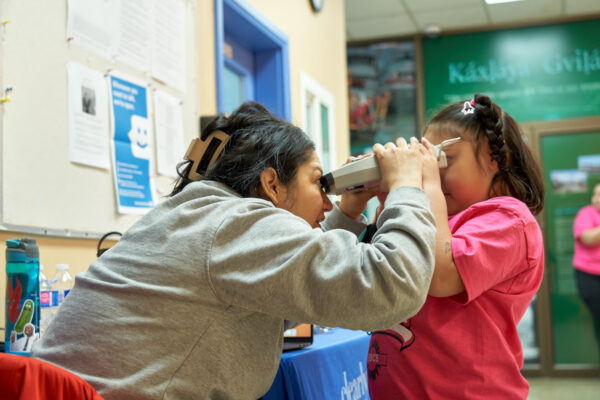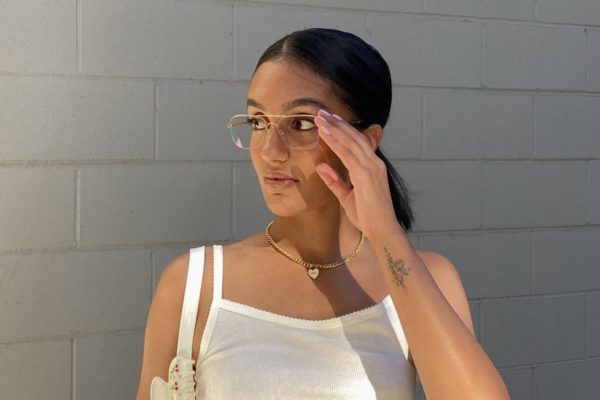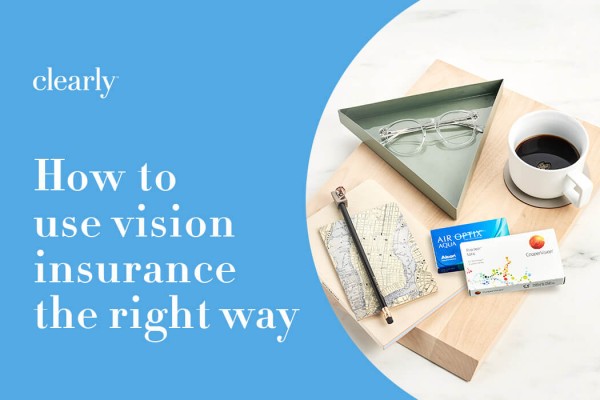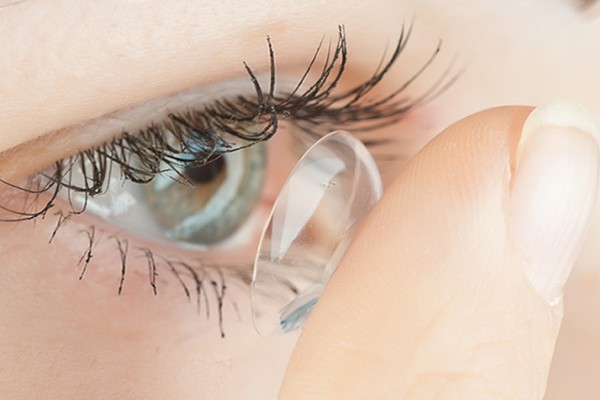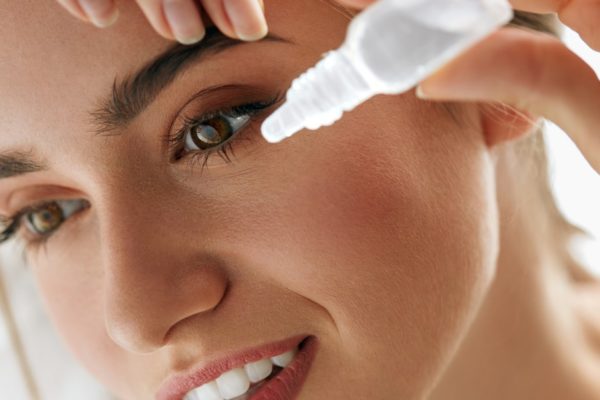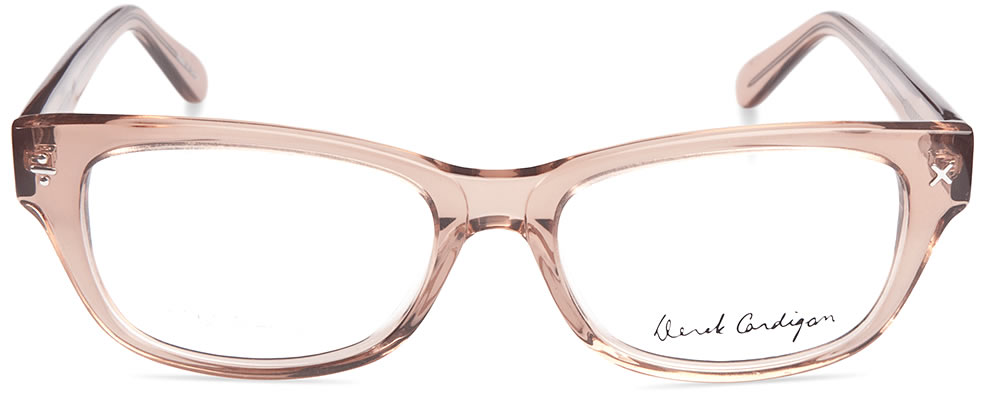This post is also available in:
![]() Français (French)
Français (French)
You might have heard that dilated pupils are a sign of love – so does that mean “love at first sight” has some truth to it?
Turns out, it’s all in the eye of the beholder – literally. Here, we explore the relation between dilated pupils and love. Find out what causes your pupils to dilate and how long pupil dilation typically lasts.
What are pupils and why do they dilate?
Your pupils are the holes in the centre of the coloured part of your eye (which is called the iris) that allow light to pass through the eye. There are many factors that can cause your pupils to dilate (get bigger) and contract (get smaller).
It’s an involuntary action in your body, controlled by the autonomic nervous system, which means you don’t really have control over when it happens.
Dim lighting is one of the most common reasons for pupils to dilate – they get bigger in order to receive as much light as possible, so you can see your surroundings clearly. When you are attracted or excited by what you see, your pupils might dilate to allow you to take in all the details.
So, do your pupils dilate when you love someone?

Pupillary dilation is a reflex action that can be triggered by physiological factors, such as excitement and attraction.
Some studies have shown that even just looking at an image of someone you’re attracted to can make your pupils dilate. But does that translate to love at first (or, if you’re lucky, millionth) sight?
It depends on how you define ‘love’. You can’t control the size of your pupils when you’re looking at something that triggers a physiological reaction – but whether that reaction signifies romantic love, lust, or like is up to you.
So, keep your eyes peeled if someone is beaming ‘the look of love’ your way – it may be one of the telltale signs of attraction. Or they might just really want that donut you’re holding.
What causes dilated pupils?
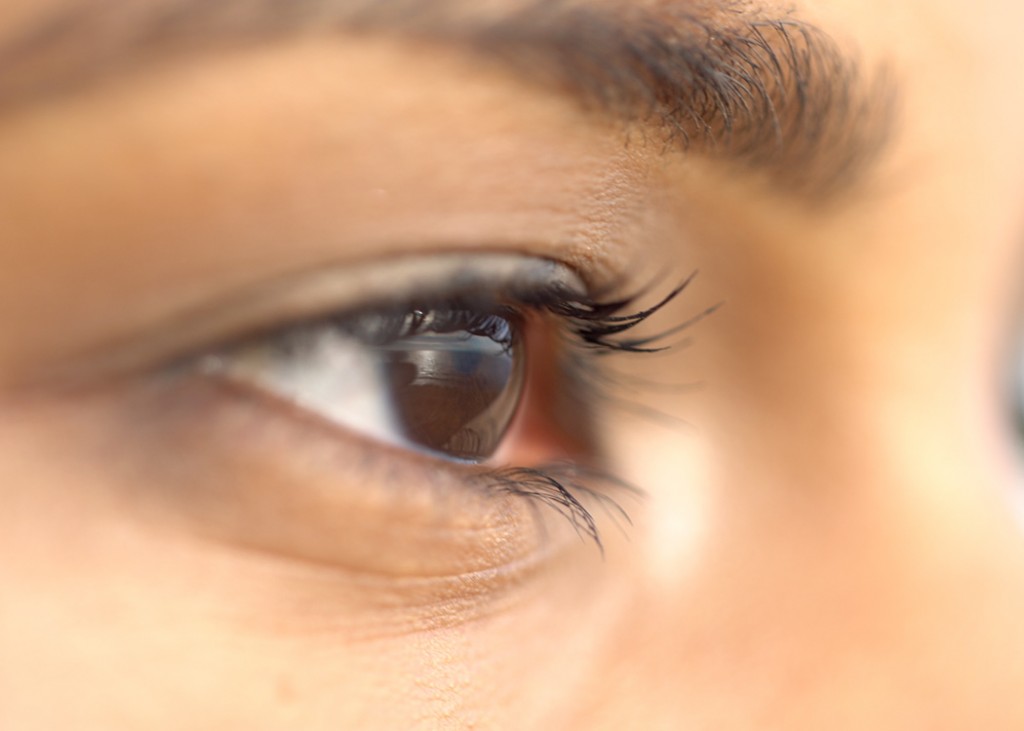
Not all dilated pupils are caused by an emotional state. There are many other (and potentially more probable) reasons for pupils to dilate.
These are just some of the reasons that can make your pupils appear bigger:
1. Dim light
Your pupils automatically contract in bright lights and dilate in dim lights, as controlled by the muscles in your iris.
When you’re in a bright place, your pupils appear smaller to prevent too much light from entering your eyes. It’s the opposite in a dim place.
If you find yourself in a candlelit romantic scene, pupils will probably appear bigger. For this reason, you might want to keep an eye out for other signs of interest, rather than purely counting on their dilated pupils.
Are they making eye contact? Are they scrolling through their IG feed? Are they pausing between bites of ravioli to ask you about yourself? You’ll know the signs when you see them.
2. Emotions
Pupillary dilation can reveal some emotions such as arousal, attraction, anger, fear and anxiety.
When your attention or focus is heightened, your pupils will dilate to better assess the situation – just like when some animals are threatened and prepared to engage in fight-or-flight mode.
3. Drugs, medications, and other substances

Certain substances affect the neurotransmitters in the brain, which can affect pupil dilation. Recreational drugs such as marijuana can cause your pupils to dilate and slow your eyes’ response to different levels of light. Illegal drugs, including stimulants (such as cocaine and amphetamines) and psychedelics (such as ecstasy and LSD) will also affect pupil dilation.
Medications can also cause your pupils to dilate and influence their response to light, as certain medicines interfere with communication between your brain and your iris muscles.
Some examples include over-the-counter medications for allergies, coughs, colds, motion sickness and nausea, and prescription medications for anti-seizure, Parkinson’s disease, some antidepressants, as well as Botox and atropine (a pupil-dilating eye drop).
4. Brain or eye injuries
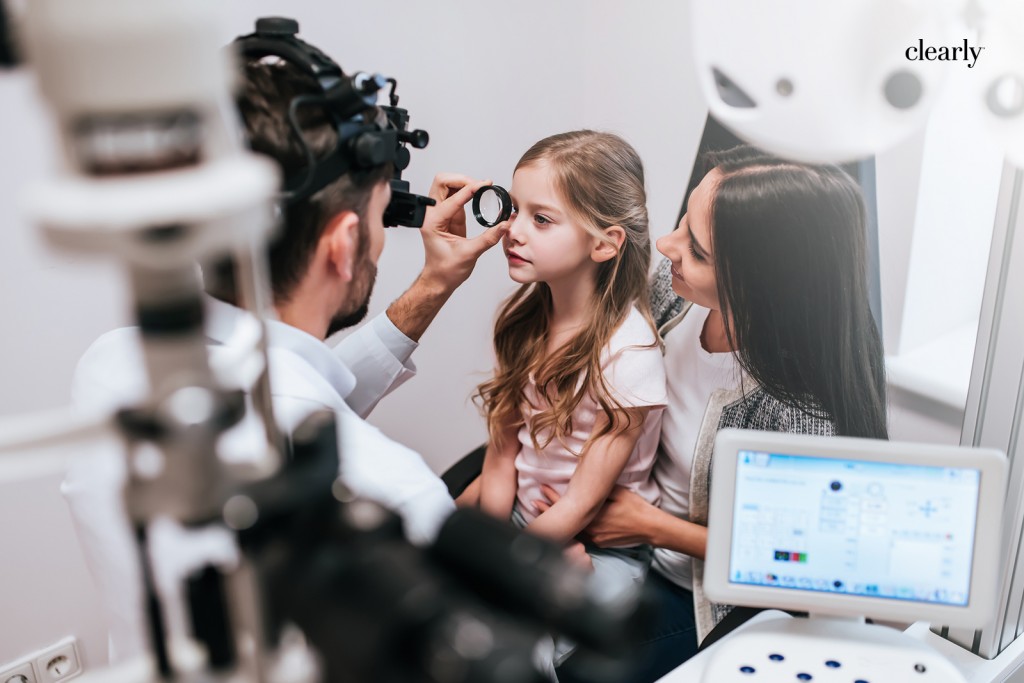
An eye-related injury and disease can change the way your iris muscles work, which affects pupillary response. Regular eye exams can help identify vision issues early on – remember to get your eyes checked at least once every two years.
A brain-related injury, disease, or stroke can permanently harm the nervous system, which affects your brain to signal your iris muscles to dilate and contract your pupils.
You may have noticed after someone has suffered a head injury, perhaps during a sports game or on TV, a medic uses a penlight to check their pupillary reaction to light. This helps them to quickly determine possible problems by monitoring pupillary response.
How long does pupillary dilation last in a comprehensive eye exam?

During a comprehensive eye exam, the doctor will often use dilating drops to cause your pupils to dilate so they don’t contract when your eye doctor shines light into your eyes, in order to assess your eye health (and your overall health).
After receiving the drops, it takes about 20 to 30 minutes for your pupils to stay fully open. Depending on the medication used, it can take between four hours and a day for your eyes to return to normal.
Everyone reacts differently to these drops depending on their state of mind and the environment they’re in. Typically, people with lighter coloured eyes will notice that their pupils dilate faster, and the effects last longer than people with brown eyes.
Upon dilation, your vision or near vision can get blurry, and sensitive to light. So, grab a taxi or sunglasses if you need them. Avoid driving, reading and looking at digital screens if your eyes are still dilated. The effects can be uncomfortable, but they are temporary.
What to do if you’re worried about dilated pupils?

If you’ve suffered a head injury and notice that your vision has been impacted, your pupils are significantly dilated, or one of your pupils is bigger than the other, seek medical care quickly. Look out for symptoms such as dizziness, headache, confusion, balance or coordination issues.
If your pupils dilate after taking medication, ask your pharmacist or doctor for advice. If they dilate suddenly and you don’t know why, make an appointment with your eye doctor as soon as possible.
Are you light-sensitive? This condition may delay your pupillary response to changing light conditions. Sunglasses, polarized sunglasses or Transitions® lenses can help you with that.
In summary, pupil dilation may be a sign of love. Or it might just be down to the fact that a cloud passed over the sun and your body is adapting. But one thing’s for sure – your eyes allow you to see, appreciate, and enjoy the things you love, so make sure to book an eye exam at a Clearly store near you and take good care of your pupils (and everything else).



